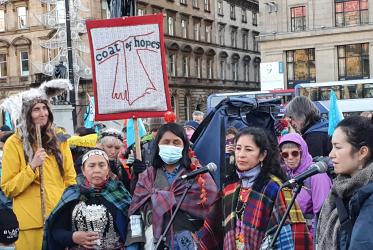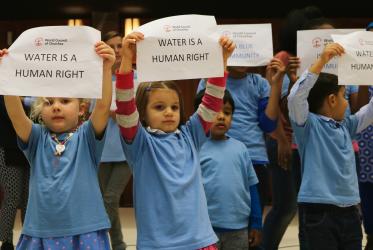Displaying 1 - 20 of 23
In Canada, local churches offer a new view on climate accountability
04 December 2020
Re-engineering life forms: Church forum raises concerns
09 November 2017
G7 must address famine
22 May 2017
Le G7 doit lutter contre la famine
22 May 2017
World Social Forum sows seed of hope in global north
17 August 2016
Weltsozialforum sät Saat der Hoffnung im globalen Norden
17 August 2016
Wiedererlangen unserer Meschlichkeit
23 June 2015
Reclaiming our humanity
23 June 2015








